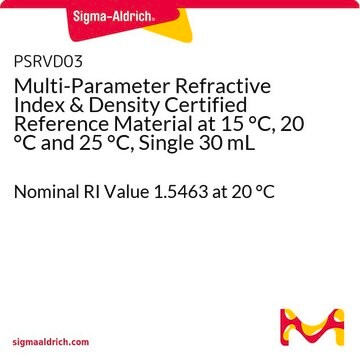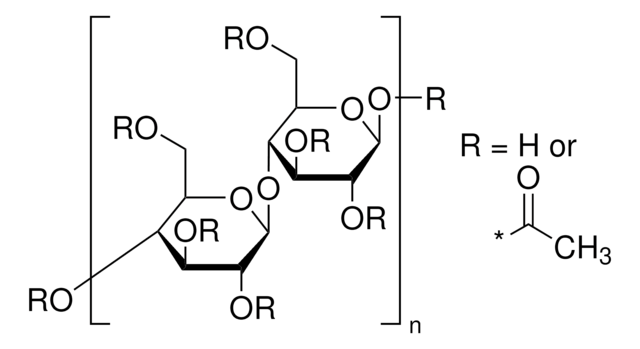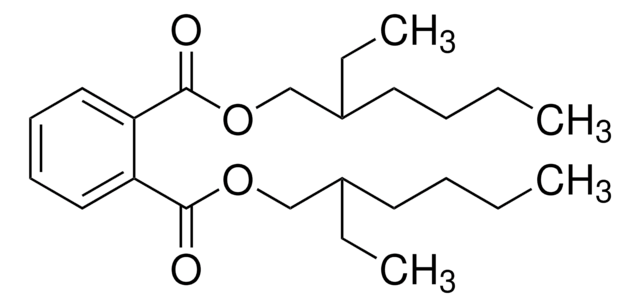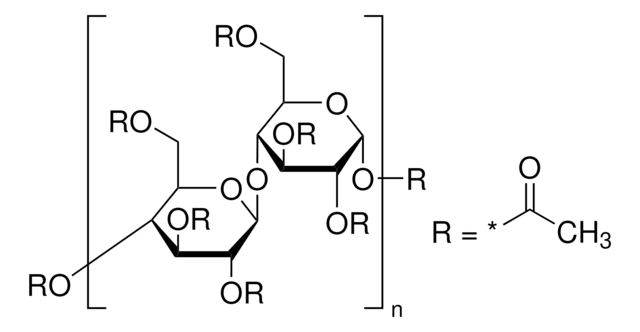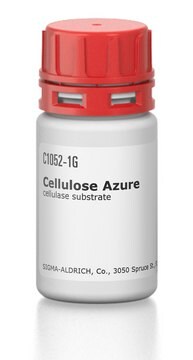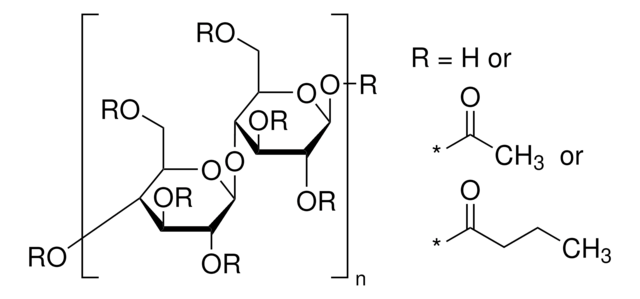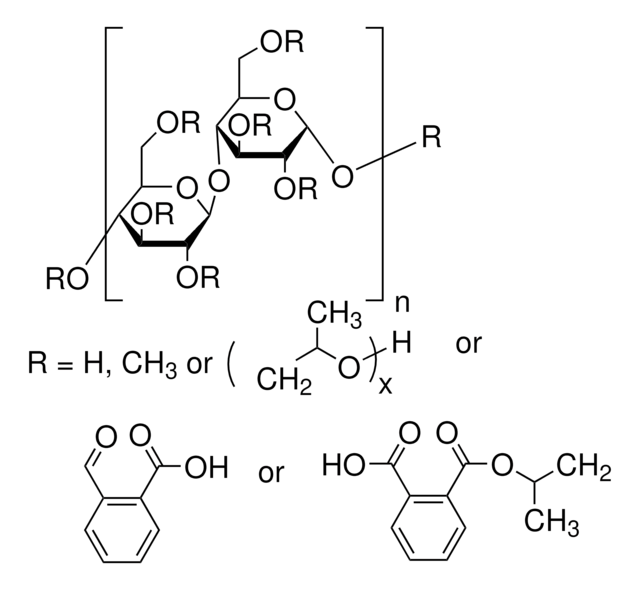22192
Cellulose Chromatography Resin
acetate phthalate
About This Item
Recommended Products
product name
Cellulose acetate phthalate,
form
powder
Quality Level
technique(s)
LPLC: suitable
matrix
acetylated cellulose
matrix active group
phthalate
capacity
1.0 meq/mL
separation technique
reversed phase
InChI
1S/C32H34O19/c1-13(33)45-11-19-21(35)25(49-29(42)17-9-5-3-7-15(17)27(38)39)23(37)32(48-19)51-24-20(12-46-14(2)34)47-31(44)26(22(24)36)50-30(43)18-10-6-4-8-16(18)28(40)41/h3-10,19-26,31-32,35-37,44H,11-12H2,1-2H3,(H,38,39)(H,40,41)/t19-,20-,21-,22+,23-,24-,25+,26-,31-,32+/m1/s1
InChI key
DMNFZTKVDDFCQE-WJXNTJCASA-N
Looking for similar products? Visit Product Comparison Guide
General description
Application
Storage Class Code
11 - Combustible Solids
WGK
WGK 3
Flash Point(F)
Not applicable
Flash Point(C)
Not applicable
Personal Protective Equipment
Choose from one of the most recent versions:
Already Own This Product?
Find documentation for the products that you have recently purchased in the Document Library.
Customers Also Viewed
Our team of scientists has experience in all areas of research including Life Science, Material Science, Chemical Synthesis, Chromatography, Analytical and many others.
Contact Technical Service
